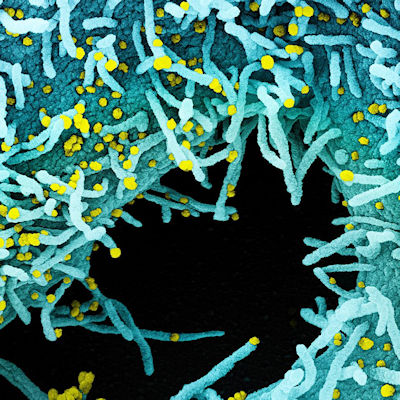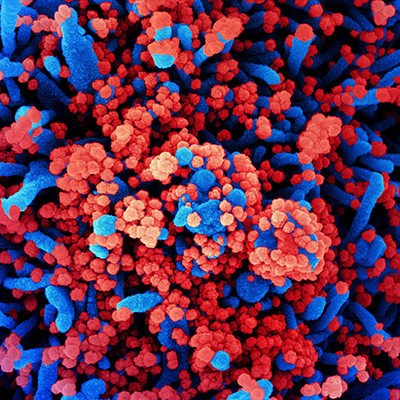July 29, 2020 -- Moderna's COVID-19 vaccine candidate, messenger RNA (mRNA)-1273, has been shown to induce immune responses and control upper and lower respiratory tract infection of rhesus macaques exposed to SARS-CoV-2, according to researchers from the U.S. National Institutes of Health's (NIH) National Institute of Allergy and Infectious Diseases (NIAID).
Results with the vaccine candidate, which was co-developed by Moderna and the NIAID Vaccine Research Center, were reported in the New England Journal of Medicine. They complement recently released clinical phase I results for the candidate.
In the animal study, macaques received two injections of 10 μg or 100 μg of mRNA-1273 or a placebo, 28 days apart. Vaccinated macaques produced high levels of neutralizing antibodies, with both doses of vaccine producing higher responses than those found in convalescent plasma of individuals recovered from COVID-19.
The vaccine induced T helper type 1 (Th 1) T-cell responses but not Th 2 responses. This is a positive result, as Th 2 responses are tied to vaccine-associated enhancement of respiratory disease. Moreover, mRNA-1273 induced T follicular helper T-cell responses that contributed to the robust antibody response. A rapid decrease in detectable replicating virus was identified just two days after vaccination.
A COVID-19 vaccine that limits disease in individuals by reducing viral replication and that reduces viral transmission by reducing viral shedding in the upper airway could be successful in reducing the spread of the disease, according to the investigators.
Do you have a unique perspective on your research related to infectious diseases or vaccine development? Contact the editor today to learn more.
Copyright © 2020 scienceboard.net











